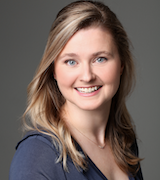Taryn Taylor

taryn.taylor@schulich.uwo.ca
Google Scholar Link
Current Appointments
Assistant Professor, Department of Obstetrics & Gynaecology
Scientist, Centre for Education Research & Innovation
Educational Background
PhD, Health Professions Education, Maastricht University
FRCSC, Royal College of Physicians and Surgeons of Canada
MD, Schulich School of Medicine & Dentistry
Why Medical Education?
Medical education represents one of the most diverse and dynamic fields of scholarly inquiry. We are a community of inquisitive people who are unafraid of asking the difficult, seemingly unanswerable or uncomfortable questions that challenge the status quo. The impact of meaningful medical education research extends beyond current trainees, healthcare providers and patients and aims to shape the future of healthcare through the continuous improvement and evolution of healthcare professions education.
What Are You Most Rewarding Career Moments?
So far the highlight of my early career has been the completion of my PhD in Health Professions Education. Not only was it exciting and momentous to celebrate the culmination of many years of hard work -- during residency training, no less -- but it was incredibly meaningful to present my dissertation at Maastricht University, in the company of my family, amazing PhD supervisors and colleagues from CERI. The celebrations continued when my dissertation entitled "Exploring fatigue as a social construct: implications for work hour reform in postgraduate medical education" was awarded the PhD prize for best doctoral research at the Association for Medical Education in Europe annual conference.
What Is Your Approach to Mentorship?
Having benefited from the stellar mentorship provided by many of my colleagues at CERI, I aim to approach mentorship in a way that is similarly supportive without being overbearing. I believe that candour, mutual respect and transparency are critical ingredients within any mentorship arrangement. I appreciate that mentorship comes in many forms and thankfully is not bounded by physical location, years of experience, or formal titles. To be a mentor is a tremendous honour and great responsibility.
Key Research Questions?
- How can simulation be used in innovative ways to better understand and improve psychological safety within healthcare teams?
- How does understanding fatigue as a social construct inform best practices in fatigue risk management?
- How do various qualitative methodologies enhance simulation-based medical education research?
Keywords
Simulation; Qualitative Research; Workplace Fatigue; Psychological Safety; Women's Health Care








